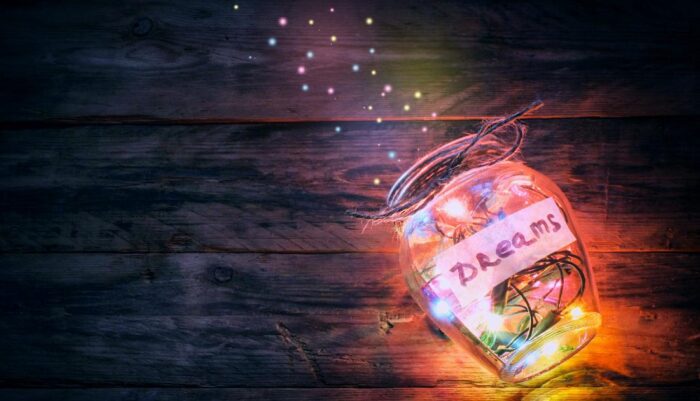Have you ever had a dream where you encounter people you once knew but whose names you can’t recall? These mysterious figures may be from your past – childhood friends, old neighbors, distant relatives. When their names elude you in the dream state, it can be frustrating and disconcerting. But what does it actually mean when you dream of forgotten names?
Table of Contents
Symbolic Meaning
Dream analysts tend to see forgotten names as having symbolic value. The inability to remember someone’s name points to a feeling of distance from that person, or losing touch with some part of yourself that the dream character represents.
Carl Jung regarded dream images as archetypes – universal human motifs and experiences. So a forgotten name in a dream could relate to a sense that you no longer identify with a youthful version of yourself, an outgrown worldview, or a previous way of being. The nameless figure embodies the forgotten or neglected aspects of who you used to be.
This symbolic perspective suggests that when you dream of people whose names you can’t recall, consider what those people mean to you, who you were when you knew them, and what forgetting their names says about how you see yourself now.
Analyzing Dream Context
The context and action of the dream also provides clues to interpret the meaning. For example, are you comfortable with the fact that you don’t remember this person’s name? Do you have a sense that you should know but their identity eludes you? Your emotional state and relationship to the anonymous dream characters are just as important as who they might represent.
Dreaming that you forget the name of someone you love or feel close to could indicate a fear of losing that connection in waking life. Meanwhile, struggling to name someone you dislike may reveal anxiety about the degree of power they have over you.
Psychoanalytic Perspective
In Freudian dream analysis, all characters and objects in dreams represent different aspects of the dreamer. From this perspective, the forgotten name symbolizes a part of yourself you are repressing or denying. The person in the dream is then just a mask for that hidden internal element.
Psychoanalysts see forgotten names connected to repression of troubling memories. The namelessness covers up pain or guilt associated with that person. This theory also suggests that you forget the names of those you feel anxious around or inferior to on some level.
Jungian Outlook
Building on Freud, Jung expanded dream interpretation to integrate forgotten names and unknown figures into fundamental parts of the psyche. Nameless strangers and acquaintances in dreams reflect the shadow – rejected components of the self that remain unseen or unrecognized in normal waking consciousness.
So if you dream of someone you feel you should know but can’t identify, this may be the shadow self emerging. The hidden facets of yourself are so unfamiliar they can’t be named. This interpretation focuses more on integrating lost parts rather than uncovering suppressed memories or emotions.
Collective Unconscious
Alongside his ideas on the shadow, Jung also developed the theory of the collective unconscious. This refers to the dimensional psychic space where all human experience resides, the source of our shared symbolic language. Jung believed that unknown people and names in dreams tap into the collective realms we all access.
So dreaming of someone without a name could indicate a primal archetype from humanity’s past that holds personal meaning for you. Interpretation here depends on the role the anonymous character plays in the dream plot and narrative. But there may be intergenerational or ancestral messages in forgotten names.
Possible Meanings:
- Losing identity or connection with your former self
- Fear of forgetting those you care about
- Repressing painful or guilt-inducing memories
- Hiding from inferior or threatening qualities in others and yourself
- Facing the unknown facets of who you are
- Accessing the collective history of human consciousness
When Dream Names Return
In many cases with recurring dreams of nameless acquaintances, the forgotten name will suddenly come back. This break-through suggests you have integrated the quality, lesson or meaning that person represents into conscious awareness.
Finally knowing the anonymous figure’s name often coincides with progress in personal growth in waking life. The once unrecognized or rejected inner realm now has an identity you can relate to.
Common Types of Forgotten Names:
Childhood – Losing touch with joy, innocence, playfulness
Romance – Fear of intimacy, inability to connect authentically
Authority Figures – Conflict with power, status, responsibility
Groups – Disconnection from community, peers, teams
Family – Estrangement from heritage, lineage, belonging
So what happens when you actually meet someone from the dream in reality whose name you couldn’t conjure up night? Jungians might interpret this as a precognitive vision or glimpse at your destiny. That person remains a player in your story, your psychic journey. Forgotten names come back when it’s time.
Ultimately, dream names and naming depend on the role those labels play in your self-narrative. The unknown figures of dreamland have messages for you hidden behind their anonymity. When you lose the names, you gain perspective to rewrite your internal story. I sincerely hope you find this “What It Means to Dream of Forgotten Names” article helpful.

Olivia Smith is the lead writer at InterpretationDreamsRevelations.com, specializing in dream analysis and spiritual guidance. She holds a Master’s degree in Psychology, focusing on dream studies and the subconscious mind. With over 10 years of experience, Olivia helps individuals uncover the deeper meanings of their dreams. Connect with her on Facebook at Dream Interpreting for insights and updates.





